Disinfect Your Hands
Dirty Money & the Secret of “The Coin of Fire”
- March 3, 2016
- |
- 23 Adar I 5776
Rabbi YY Jacobson
2652 צפיות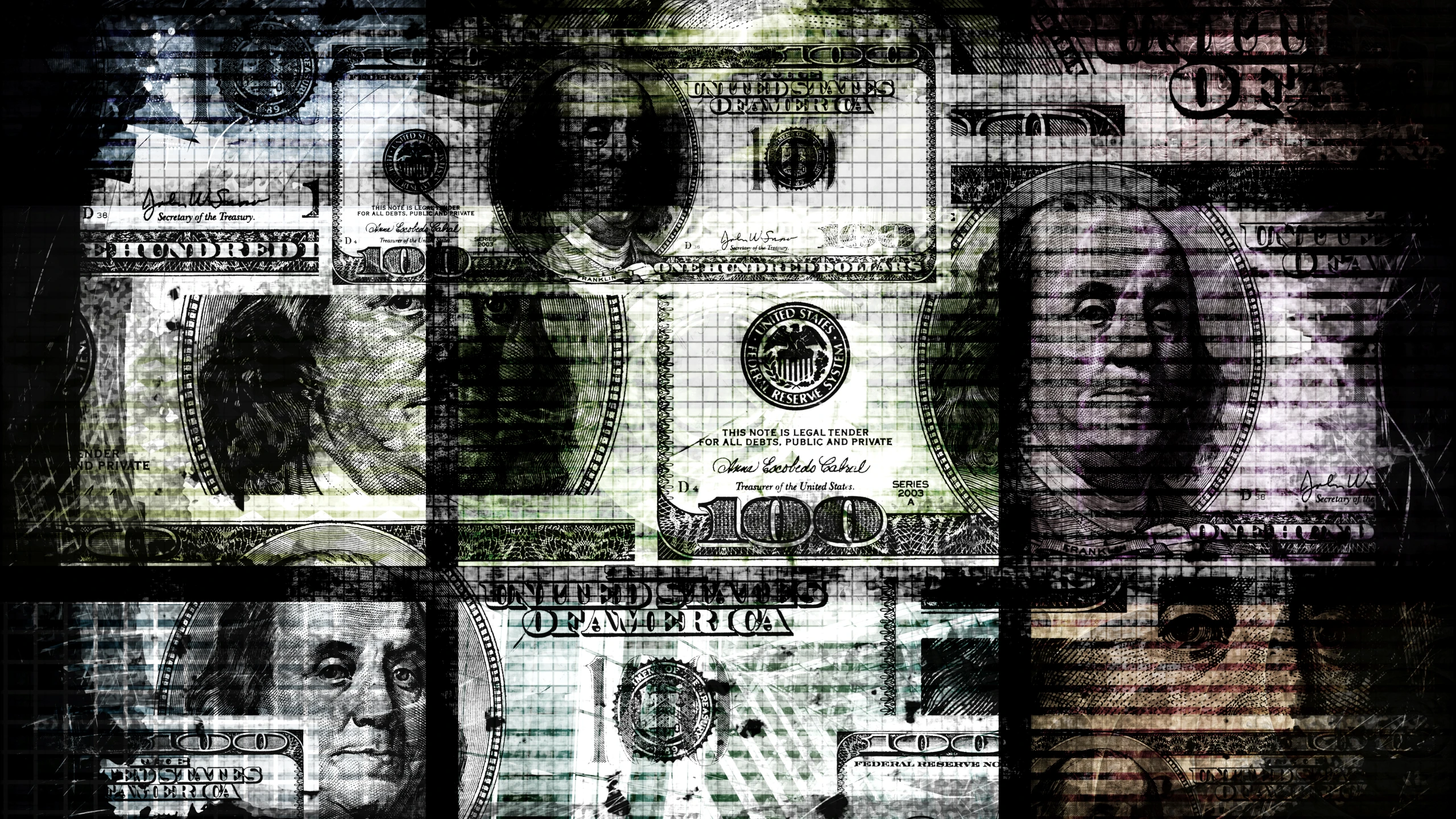

Disinfect Your Hands
Dirty Money & the Secret of “The Coin of Fire”
Rabbi YY Jacobson
- March 3, 2016
Delivery Boy
A company, feeling it was time for a shakeup, hires a new CEO. This new boss is determined to rid the company of all slackers.
On a tour of the facilities, the CEO notices a guy leaning on a wall. The room is full of workers and he wants to let them know he means business.
The CEO walks up to the guy and asks, "And how much money do you make a week?" Undaunted, the young fellow looks at him and replies, "I make $600.00 a week, sir. Why?"
The CEO then hands the guy $6,000 in cash and screams, "Here's ten week's pay, now GET OUT and don't come back! No room in this company for people just leaning against walls. Out of there!”
Feeling pretty good about his first firing, the CEO looks around the room and asks, "Does anyone want to tell me what that goof-off did here?"
With a sheepish grin, one of the other workers mutters, "Pizza delivery guy from Domino's. He was waiting for his tip."
Portion of the Coins
This Shabbos, Jews the world over will read in the openong of the weekly portion the "portion of the coins." This section of the Torah records the mitzvah incumbent upon the people of Israel, to make a yearly contribution of a half shekel to cover the cost of all communal Temple offerings. A shekel was a specific weight of silver (between 13 and 16 grams) that was the standard coinage used at the time. The Jewish people were instructed to contribute a half-shekel coin, which was a silver coin weighing about 7 or 8 grams, to the Temple. In today’s currency, it would be around 7 dollars.
"This they shall give," declares G-d to Moses, "a half shekel.” The Talmud and Midrash[1] tell us that the word "this" (“this they shall give”) teaches us that G-d actually showed Moses a half-shekel formed of fire and said: "Here, this is what I mean by a half-shekel."
Why did G-d have to show Moses a coin?[2] Tosefos explains,[3] that what Moses could not grasp was G-d’s words to him that contributing this coin, would constitute a “kofer nefesh,” an atonement for the soul of every giver.[4] How can seven grams of silver, or seven dollars, be an atonement for the soul, when it can’t even buy you a pack of cigarettes?
But then how did G-d answer the question by showing him a coin of fire? And what is the meaning of a “coin of fire?” If G-d had to show him, why did He show him a fiery coin and not a regular one?
The answer has to do with the duty to "disinfect your hands" spiritually. To make sure your hands are clean; what comes in to them, and what goes out of them is pure. Just like the coronavirus, the "dirt" can be invisible, but its impact is real.
Source of Money
In October 2001, the nephew of Saudi Arabia's King Fahd, Prince Al Waleed ibn Talal ibn Abdulaziz al Saud toured the ruins of Ground Zero with New York Mayor Rudolph W. Giuliani. The Prince, the world's sixth-wealthiest person with assets of $20 billion, gave the mayor a ten million dollar check for a World Trade Center relief fund.
But he later issued a written statement: "Our Palestinian brethren continue to be slaughtered at the hands of the Israelis while the world turns the other cheek. At times like this one, we must address some of the issues that led to the criminal attack [of 9-11]." The Prince was blaming Israel for 9-11.
So Rudi Giuliani threw the check back in his face. He would not take this man’s money.
Reparations
A similar question, albeit in a very different circumstances, has divided the “house of Israel” in the Land of Israel more than any other issue. No issue has so bitterly divided the Jewish population in Israel.
In March 1953, West Germany agreed to pay Israel for the slave labor and persecution of Jews during the Holocaust, and to compensate for Jewish property that was stolen by the Nazis. Germany pledged 3 billion mark (800 million dollars) over 14 years, in reparations, or in the German term, “vider-gut-machung,” וִוידעֶרגוטמאַכונג
The nation was split. There was the pragmatic view of Prime Minister David Ben Gurion vs. the passionate gut wrenching plea of his rival Menachem Begin. Ben Gurion argued that Israel’s economic future was in peril. There was no way to integrate all of the new immigrants; there were few jobs, and little money to build the infrastructure of a new country. How can Israel refuse 800 million dollars in the 1950’s? (Indeed in 1956, 87 percent of Israel income came from German reparation moneys.)
On January 7, 1952, the day when the Keneset was planning to vote on the matter, Mencahem Begin presented one of his most impassioned and powerful speeches, leading to an aggressive and unforgettable demonstration near the Keneset, in which 150 people were injured. Begin said it was the greatest disgrace of the new Jewish State to “sell the honor of the Jewish people for German money.” Describing the agony of the six million, Begin wondered how Jews can take money from Germany.
“Children of Jerusalem, citizens of Israel!
“Tonight might occur the most treacherous event in the history of our people. At this bitter moment we will pass through our memory our holy father, our slain mothers, and the millions of our children sent to be slaughter through the Satan who emerged from the depths of hell to destroy the remnants of our people… The Germans took my father, together with 500 Jews from Brisk, and drowned them in the river. Young innocent girls were buried alive, with their heads downward. Infants were seized from their mother’s arms and sent to the gas furnaces…
“Today, four years after the establishment of the State of Israel, the Jewish Prime Minister declares that he will go to Germany to get money, for a slice of money he will sell the honor of the Jewish nation and confer upon it eternal disgrace. I say to Ben Gurion: there will not be any negotiation with Germany. For this we are all ready to die. There is not a sacrifice we will not bring to stop this scheme…”
Auschwitz survivor Yechiel De-Nur, under his pen name K. Tzetnick, wrote a heart wrenching poem, entitled “vidergutmachung.” One line I recall vividly: “My sister had the most beautiful and majestic golden locks of hair. The Germans shaved them before they sent her to the ovens. How many marks is my sister’s hair worth…?”
The decision was ultimately accepted by a 61-50 margin in the Keneset. Israel would accept the reparation money from Germany. The advocates argued that it was a “new Germany” paying out the money, a Germany that has at least officially expressed remorse, and Israel could and should benefit from this money. This argument ultimately triumphed in the Israeli Parliament. Over the past six decades, the Claims Conference returned billions to survivors and to many Jewish institutions.
The Torah Approach
What is the Torah approach? I am not sure there is one view. It is more a matter of emotion, and one ought not to judge the strong emotions of one side or another, especially when espoused by survivors who have experiences what the Germans have do to them and their loved ones.
We do know that G-d commanded the Jews to borrow and ultimately seize any property they could get their hands on from the Egyptians—the very people who oppressed them. On the other hand, G-d tells us to obliterate “the memory of Amalek,” the arch enemy of the Jew, and not keep anything with his name on it, not even an animal. The Jew is not allowed to own anything with the name of “Amalek” on it. [5] Yet, on the other hand, when the money is transferred to us, it has not the previous name on it any longer; it becomes Jewish money.
Why the Need to Know Thoughts?
Whatever your verdict on the questions, in Judaism, the source of money is important. Money is more than just money. There is a difference between “clean money” and “dirty money.” And the difference exists, although in a much more subtle and refined form, within Jewish money itself.
Bezalel is the man who supervised the work of the Mishkan (Tabernacle), as discussed in this week’s portion. G-d’s complimentary words about him are impressive: “I filled him with the spirit of G-d, with wisdom, intelligence and knowledge, to do creative work, and with the ability to know thoughts, to work in gold and silver and copper.'” [6] When he introduces Bezalel to the Jewish people, Moses repeats this same description.[7] Indeed, our sages explain he Bezalel was blessed with “ruach hakodesh,”[8] with the ability to know people’s thoughts.
Yet this is strange: We understand why Bezalel had to have wisdom and knowledge to do this job. We understand the need for skill and craftsmanship to build such an elegant, nuanced and complex structure. But why was it necessary for him to know thoughts of people? He was a builder not a psychic?
The Fundraisers
The answer to this question is in an interesting story which occurred in the beginning of the 19th century.
Rabbi Chaim of Volozhin (1749-1821), one of the great rabbis of his day, was the outstanding disciple of the Vilna Gaon and the founder of the Volozhin Yeshiva in 1802, the “mother” of all of the Lithuanian Yeshivos.
(Although he was from the camp of the opponents to Chassidim, he was personally sympathetic to the Chassidim, to the point that he did not sign the ban of his Rebbe, the Vilna Gaon, against the Chassidim. Reb Chaim's esoteric philosophy is expounded in his classic work Nefesh HaChaim.)
Rabbi Chaim of Volozhin employed fund-raisers to travel in Eastern Europe to collect donations for the support of the yeshiva. Once a fund raiser, dressed elegantly, traveling in a fancy coach, and well groomed, approached a wealthy donor who would regularly contribute to the yeshiva. But alas the man refused to give the money.
Reb Chaim decided to pay a visit to him personally as the yeshiva really needed his contribution.
The wealthy donor explained to Rabbi Chaim that when he saw the flashy appearances of the fund raiser he decided not to give any money. “I do not want my money to go and sponsor the fancy clothe and coaches of your fundraisers. I want my money to go directly to the study of Torah and not be consumed in the expenses of the fund-raising projects and employees!”
We are all acutely aware of the issue: A fundraiser collects money for an institution, but much of the money raised must go to cover his own expenses: the fundraiser got to rent a car, stay in a hotel (usually in a nice one), eat out in restaurants, get a custom made suit to present himself nicely, and of course fly first class, so that he can fundraise like a mentch… Nu, half or more of your donation is going to cover his expenses.
So this wealthy philanthropist told Reb Chaim, that he is ready to give him a large sum of money, but with one condition: The money goes directly to support the students studying Torah, to purchase books, to pay teachers, to keep the candles burning at night for the students to learn. He does not want his money to go to support fundraisers who need to travel in fancy coaches.
Rabbi Chaim answered him:
When the Jews contributed gold to the building of the Mishkan, all of them undoubtedly wished that their particular piece of gold be used in the creation of the Holy Ark itself and not dispensed for other purposes connected with the expenses of that construction. If you can have your gold used for the Ark, situated in the Holy of Holies, which contained the Holy Tablets, above which G-d’s words were communicated to Moses, why would you want your gold for the hooks on the outer part of the structure to hang curtains?
So both Mr. Goldberg and Mr. Cohen gave their gold to the Tabernacle. Which one would go to build the Holy Ark? And whose gold would go for the hooks?
Ah, Bezalel, the builder of the Mishkan, possessed “ruach hakodesh,” he sensed the inner thoughts of all of the donors. Bezalel was able to discern which gold was given with the purest and most selfless of motives and which gold were donated because of ulterior motives. It was Bezalel's special genius to intuitively know the inner thoughts and intentions of each donor and to measure his or her sincerity. He was able to know whether a donor gave his offer purely for the sake of Heaven, without secondary thoughts of honor and prestige, and to use the gifts accordingly.
You see, the "pure" gold, given selflessly, without hesitation and in fulfillment of G-d's commandment, found its way into the construction of the Holy Ark, which housed the tablets of stone of Sinai and was the purest and holiest item in the Tabernacle. The other gold, containing the dross of conflicting and varying motives for its donation, was used for the other tasks necessary for the creation of the Mishkan, for items that were a bit less pure and holy.
So too with the donations to the yeshiva of Volozhin. The purer the intent of the donor to only do G-d's will and to truly support the study of His Torah, his donation will be used directly for the study of Torah itself and not be subsumed in the expenses of the fund-raising operations of the yeshiva. However, those who give to the yeshiva for their good name, for their reputation, for their appearances, their money goes to keep up appearances too, for the magnificent coach and finely tailored clothing of our representative, which is also important in its own right.
And those who only give for arrogance and to show off, their money goes for the horse's fodder…
“So,” Reb Chaim concluded, “it is the donor himself, not I nor my staff, who will make the eventual determination as to how and where the monies donated will be allocated and spent. If you want your money to go to the ultimate destination, work on your heart. Make sure it is pure.”
Fiery Coin
Now we will understand the story with the fiery coin. Moses could not understand how can a coin 7 grams of silver be a “kofer nefesh,” an atonement for the human soul?
So G-d showed him a “coin of fire,” “matbaah shel eish.” G-d explained to Moses that it is not only the coin that counts; it is the fire and passion that comes along with the coin. When a Jew gives a coin with a fire in his or her heart, with enthusiasm and zeal, with a delight and a feeling of love, a simple coin becomes a coin of fire! The physical coin catches on the fire of the soul. Now it is not just money, now it is money on fire! Such money can atone for your soul. For it is “soulful money.” [9]
This is what G-d was telling Moses: Money is money—we know that; but money is also more than money. The heart, the soul, which accompanies the money, redefines what type of money it is: holy or profane, spiritual or physical, earthly or transcendent. Money that contains the purity of “a yifdishe hartz,” of a warm fiery a Jewish heart, this is sacred and pure money. It is money on fire. Such money makes it was into the holy of holies, and sublimates the giver to the greatest of heights.
When I do a favor to another human being, when I give tzedakah, when I help someone with advice or a loan, with a gesture or a kind word, I must not only consider the act itself. I must focus on my emotions in the process. I ought to help the other with heart, with passion, with compassion. If I remain cold and detached, my coin also remains cold and dead. But when I write out a check with love and empathy, then the check goes on fire.
We need the fire. The next time you extend your wallet or your mind, show some love and understanding. Put your soul into it.
____________________________________
[1] Talmud Yerushalmi Shekalim 1:4. Midrash Rabah Bamidbar 12:3. Quoted in Rashi to Exodus 30:13
[2] We have other examples where Moses was shown things by G-d so he would know exactly what G-d meant. G-d showed him the menorah, because it was a very complicated vessel to build. And G-d showed him the shape of the moon as it appears on the night of Rosh Chodesh, so that the Jews would know how to fix the calendar. Yet with the silver coin, there does not seem to be any difficulty.
[3] Talmud Chulin 42a
[4] Exodus 30:12
[5] See at length Likkutei Sichos vol. 14 Ki Satzei and the references noted there.
[6] Exodus 31: 3-4
[7] Exodus 35:31-32
[8] Rashi Exodus 31:3
[9] See Likkutei Sichos vol. 2 p. 677. Sichas Shabbos Parshas Ki Sisa 5745 (1985).
- תגובה
סיכום השיעור:
The Midrash relates that Moses found it hard to understand the mitzvah of a half-shekel, so G-d showed him a fiery coin. But what's so hard to understand about a half-shekel? It's a simple coin. And if G-d had to show it to him, why did He show him a fiery coin and not a regular one?
The issue that divided Israel most was the reparations received from Germany after the Holocaust. Did it mean that the Jews forgave the Germans for they did? Ben Gurion and Begin quarreled on this issue like on no other. Israel decided to take German money.
Reb Chaim of Volozhin explained to a donor, that among Jews too, there is “dirty money” and “clean money.” And the two types of money make their way to two different destinations. When G-d showed Moses a "coin of fire," He was demonstrating to him that money was not only money.
Dedicated by Abe Spitz
Delivery Boy
A company, feeling it was time for a shakeup, hires a new CEO. This new boss is determined to rid the company of all slackers.
On a tour of the facilities, the CEO notices a guy leaning on a wall. The room is full of workers and he wants to let them know he means business.
The CEO walks up to the guy and asks, "And how much money do you make a week?" Undaunted, the young fellow looks at him and replies, "I make $600.00 a week, sir. Why?"
The CEO then hands the guy $6,000 in cash and screams, "Here's ten week's pay, now GET OUT and don't come back! No room in this company for people just leaning against walls. Out of there!”
Feeling pretty good about his first firing, the CEO looks around the room and asks, "Does anyone want to tell me what that goof-off did here?"
With a sheepish grin, one of the other workers mutters, "Pizza delivery guy from Domino's. He was waiting for his tip."
Portion of the Coins
This Shabbos, Jews the world over will read in the openong of the weekly portion the "portion of the coins." This section of the Torah records the mitzvah incumbent upon the people of Israel, to make a yearly contribution of a half shekel to cover the cost of all communal Temple offerings. A shekel was a specific weight of silver (between 13 and 16 grams) that was the standard coinage used at the time. The Jewish people were instructed to contribute a half-shekel coin, which was a silver coin weighing about 7 or 8 grams, to the Temple. In today’s currency, it would be around 7 dollars.
"This they shall give," declares G-d to Moses, "a half shekel.” The Talmud and Midrash[1] tell us that the word "this" (“this they shall give”) teaches us that G-d actually showed Moses a half-shekel formed of fire and said: "Here, this is what I mean by a half-shekel."
Why did G-d have to show Moses a coin?[2] Tosefos explains,[3] that what Moses could not grasp was G-d’s words to him that contributing this coin, would constitute a “kofer nefesh,” an atonement for the soul of every giver.[4] How can seven grams of silver, or seven dollars, be an atonement for the soul, when it can’t even buy you a pack of cigarettes?
But then how did G-d answer the question by showing him a coin of fire? And what is the meaning of a “coin of fire?” If G-d had to show him, why did He show him a fiery coin and not a regular one?
The answer has to do with the duty to "disinfect your hands" spiritually. To make sure your hands are clean; what comes in to them, and what goes out of them is pure. Just like the coronavirus, the "dirt" can be invisible, but its impact is real.
Source of Money
In October 2001, the nephew of Saudi Arabia's King Fahd, Prince Al Waleed ibn Talal ibn Abdulaziz al Saud toured the ruins of Ground Zero with New York Mayor Rudolph W. Giuliani. The Prince, the world's sixth-wealthiest person with assets of $20 billion, gave the mayor a ten million dollar check for a World Trade Center relief fund.
But he later issued a written statement: "Our Palestinian brethren continue to be slaughtered at the hands of the Israelis while the world turns the other cheek. At times like this one, we must address some of the issues that led to the criminal attack [of 9-11]." The Prince was blaming Israel for 9-11.
So Rudi Giuliani threw the check back in his face. He would not take this man’s money.
Reparations
A similar question, albeit in a very different circumstances, has divided the “house of Israel” in the Land of Israel more than any other issue. No issue has so bitterly divided the Jewish population in Israel.
In March 1953, West Germany agreed to pay Israel for the slave labor and persecution of Jews during the Holocaust, and to compensate for Jewish property that was stolen by the Nazis. Germany pledged 3 billion mark (800 million dollars) over 14 years, in reparations, or in the German term, “vider-gut-machung,” וִוידעֶרגוטמאַכונג
The nation was split. There was the pragmatic view of Prime Minister David Ben Gurion vs. the passionate gut wrenching plea of his rival Menachem Begin. Ben Gurion argued that Israel’s economic future was in peril. There was no way to integrate all of the new immigrants; there were few jobs, and little money to build the infrastructure of a new country. How can Israel refuse 800 million dollars in the 1950’s? (Indeed in 1956, 87 percent of Israel income came from German reparation moneys.)
On January 7, 1952, the day when the Keneset was planning to vote on the matter, Mencahem Begin presented one of his most impassioned and powerful speeches, leading to an aggressive and unforgettable demonstration near the Keneset, in which 150 people were injured. Begin said it was the greatest disgrace of the new Jewish State to “sell the honor of the Jewish people for German money.” Describing the agony of the six million, Begin wondered how Jews can take money from Germany.
“Children of Jerusalem, citizens of Israel!
“Tonight might occur the most treacherous event in the history of our people. At this bitter moment we will pass through our memory our holy father, our slain mothers, and the millions of our children sent to be slaughter through the Satan who emerged from the depths of hell to destroy the remnants of our people… The Germans took my father, together with 500 Jews from Brisk, and drowned them in the river. Young innocent girls were buried alive, with their heads downward. Infants were seized from their mother’s arms and sent to the gas furnaces…
“Today, four years after the establishment of the State of Israel, the Jewish Prime Minister declares that he will go to Germany to get money, for a slice of money he will sell the honor of the Jewish nation and confer upon it eternal disgrace. I say to Ben Gurion: there will not be any negotiation with Germany. For this we are all ready to die. There is not a sacrifice we will not bring to stop this scheme…”
Auschwitz survivor Yechiel De-Nur, under his pen name K. Tzetnick, wrote a heart wrenching poem, entitled “vidergutmachung.” One line I recall vividly: “My sister had the most beautiful and majestic golden locks of hair. The Germans shaved them before they sent her to the ovens. How many marks is my sister’s hair worth…?”
The decision was ultimately accepted by a 61-50 margin in the Keneset. Israel would accept the reparation money from Germany. The advocates argued that it was a “new Germany” paying out the money, a Germany that has at least officially expressed remorse, and Israel could and should benefit from this money. This argument ultimately triumphed in the Israeli Parliament. Over the past six decades, the Claims Conference returned billions to survivors and to many Jewish institutions.
The Torah Approach
What is the Torah approach? I am not sure there is one view. It is more a matter of emotion, and one ought not to judge the strong emotions of one side or another, especially when espoused by survivors who have experiences what the Germans have do to them and their loved ones.
We do know that G-d commanded the Jews to borrow and ultimately seize any property they could get their hands on from the Egyptians—the very people who oppressed them. On the other hand, G-d tells us to obliterate “the memory of Amalek,” the arch enemy of the Jew, and not keep anything with his name on it, not even an animal. The Jew is not allowed to own anything with the name of “Amalek” on it. [5] Yet, on the other hand, when the money is transferred to us, it has not the previous name on it any longer; it becomes Jewish money.
Why the Need to Know Thoughts?
Whatever your verdict on the questions, in Judaism, the source of money is important. Money is more than just money. There is a difference between “clean money” and “dirty money.” And the difference exists, although in a much more subtle and refined form, within Jewish money itself.
Bezalel is the man who supervised the work of the Mishkan (Tabernacle), as discussed in this week’s portion. G-d’s complimentary words about him are impressive: “I filled him with the spirit of G-d, with wisdom, intelligence and knowledge, to do creative work, and with the ability to know thoughts, to work in gold and silver and copper.'” [6] When he introduces Bezalel to the Jewish people, Moses repeats this same description.[7] Indeed, our sages explain he Bezalel was blessed with “ruach hakodesh,”[8] with the ability to know people’s thoughts.
Yet this is strange: We understand why Bezalel had to have wisdom and knowledge to do this job. We understand the need for skill and craftsmanship to build such an elegant, nuanced and complex structure. But why was it necessary for him to know thoughts of people? He was a builder not a psychic?
The Fundraisers
The answer to this question is in an interesting story which occurred in the beginning of the 19th century.
Rabbi Chaim of Volozhin (1749-1821), one of the great rabbis of his day, was the outstanding disciple of the Vilna Gaon and the founder of the Volozhin Yeshiva in 1802, the “mother” of all of the Lithuanian Yeshivos.
(Although he was from the camp of the opponents to Chassidim, he was personally sympathetic to the Chassidim, to the point that he did not sign the ban of his Rebbe, the Vilna Gaon, against the Chassidim. Reb Chaim's esoteric philosophy is expounded in his classic work Nefesh HaChaim.)
Rabbi Chaim of Volozhin employed fund-raisers to travel in Eastern Europe to collect donations for the support of the yeshiva. Once a fund raiser, dressed elegantly, traveling in a fancy coach, and well groomed, approached a wealthy donor who would regularly contribute to the yeshiva. But alas the man refused to give the money.
Reb Chaim decided to pay a visit to him personally as the yeshiva really needed his contribution.
The wealthy donor explained to Rabbi Chaim that when he saw the flashy appearances of the fund raiser he decided not to give any money. “I do not want my money to go and sponsor the fancy clothe and coaches of your fundraisers. I want my money to go directly to the study of Torah and not be consumed in the expenses of the fund-raising projects and employees!”
We are all acutely aware of the issue: A fundraiser collects money for an institution, but much of the money raised must go to cover his own expenses: the fundraiser got to rent a car, stay in a hotel (usually in a nice one), eat out in restaurants, get a custom made suit to present himself nicely, and of course fly first class, so that he can fundraise like a mentch… Nu, half or more of your donation is going to cover his expenses.
So this wealthy philanthropist told Reb Chaim, that he is ready to give him a large sum of money, but with one condition: The money goes directly to support the students studying Torah, to purchase books, to pay teachers, to keep the candles burning at night for the students to learn. He does not want his money to go to support fundraisers who need to travel in fancy coaches.
Rabbi Chaim answered him:
When the Jews contributed gold to the building of the Mishkan, all of them undoubtedly wished that their particular piece of gold be used in the creation of the Holy Ark itself and not dispensed for other purposes connected with the expenses of that construction. If you can have your gold used for the Ark, situated in the Holy of Holies, which contained the Holy Tablets, above which G-d’s words were communicated to Moses, why would you want your gold for the hooks on the outer part of the structure to hang curtains?
So both Mr. Goldberg and Mr. Cohen gave their gold to the Tabernacle. Which one would go to build the Holy Ark? And whose gold would go for the hooks?
Ah, Bezalel, the builder of the Mishkan, possessed “ruach hakodesh,” he sensed the inner thoughts of all of the donors. Bezalel was able to discern which gold was given with the purest and most selfless of motives and which gold were donated because of ulterior motives. It was Bezalel's special genius to intuitively know the inner thoughts and intentions of each donor and to measure his or her sincerity. He was able to know whether a donor gave his offer purely for the sake of Heaven, without secondary thoughts of honor and prestige, and to use the gifts accordingly.
You see, the "pure" gold, given selflessly, without hesitation and in fulfillment of G-d's commandment, found its way into the construction of the Holy Ark, which housed the tablets of stone of Sinai and was the purest and holiest item in the Tabernacle. The other gold, containing the dross of conflicting and varying motives for its donation, was used for the other tasks necessary for the creation of the Mishkan, for items that were a bit less pure and holy.
So too with the donations to the yeshiva of Volozhin. The purer the intent of the donor to only do G-d's will and to truly support the study of His Torah, his donation will be used directly for the study of Torah itself and not be subsumed in the expenses of the fund-raising operations of the yeshiva. However, those who give to the yeshiva for their good name, for their reputation, for their appearances, their money goes to keep up appearances too, for the magnificent coach and finely tailored clothing of our representative, which is also important in its own right.
And those who only give for arrogance and to show off, their money goes for the horse's fodder…
“So,” Reb Chaim concluded, “it is the donor himself, not I nor my staff, who will make the eventual determination as to how and where the monies donated will be allocated and spent. If you want your money to go to the ultimate destination, work on your heart. Make sure it is pure.”
Fiery Coin
Now we will understand the story with the fiery coin. Moses could not understand how can a coin 7 grams of silver be a “kofer nefesh,” an atonement for the human soul?
So G-d showed him a “coin of fire,” “matbaah shel eish.” G-d explained to Moses that it is not only the coin that counts; it is the fire and passion that comes along with the coin. When a Jew gives a coin with a fire in his or her heart, with enthusiasm and zeal, with a delight and a feeling of love, a simple coin becomes a coin of fire! The physical coin catches on the fire of the soul. Now it is not just money, now it is money on fire! Such money can atone for your soul. For it is “soulful money.” [9]
This is what G-d was telling Moses: Money is money—we know that; but money is also more than money. The heart, the soul, which accompanies the money, redefines what type of money it is: holy or profane, spiritual or physical, earthly or transcendent. Money that contains the purity of “a yifdishe hartz,” of a warm fiery a Jewish heart, this is sacred and pure money. It is money on fire. Such money makes it was into the holy of holies, and sublimates the giver to the greatest of heights.
When I do a favor to another human being, when I give tzedakah, when I help someone with advice or a loan, with a gesture or a kind word, I must not only consider the act itself. I must focus on my emotions in the process. I ought to help the other with heart, with passion, with compassion. If I remain cold and detached, my coin also remains cold and dead. But when I write out a check with love and empathy, then the check goes on fire.
We need the fire. The next time you extend your wallet or your mind, show some love and understanding. Put your soul into it.
____________________________________
[1] Talmud Yerushalmi Shekalim 1:4. Midrash Rabah Bamidbar 12:3. Quoted in Rashi to Exodus 30:13
[2] We have other examples where Moses was shown things by G-d so he would know exactly what G-d meant. G-d showed him the menorah, because it was a very complicated vessel to build. And G-d showed him the shape of the moon as it appears on the night of Rosh Chodesh, so that the Jews would know how to fix the calendar. Yet with the silver coin, there does not seem to be any difficulty.
[3] Talmud Chulin 42a
[4] Exodus 30:12
[5] See at length Likkutei Sichos vol. 14 Ki Satzei and the references noted there.
[6] Exodus 31: 3-4
[7] Exodus 35:31-32
[8] Rashi Exodus 31:3
[9] See Likkutei Sichos vol. 2 p. 677. Sichas Shabbos Parshas Ki Sisa 5745 (1985).
Essay Ki Sisa
Rabbi YY Jacobson
- March 3, 2016
- |
- 23 Adar I 5776
- |
- 2652 צפיות

Disinfect Your Hands
Dirty Money & the Secret of “The Coin of Fire”
Rabbi YY Jacobson
- March 3, 2016
Delivery Boy
A company, feeling it was time for a shakeup, hires a new CEO. This new boss is determined to rid the company of all slackers.
On a tour of the facilities, the CEO notices a guy leaning on a wall. The room is full of workers and he wants to let them know he means business.
The CEO walks up to the guy and asks, "And how much money do you make a week?" Undaunted, the young fellow looks at him and replies, "I make $600.00 a week, sir. Why?"
The CEO then hands the guy $6,000 in cash and screams, "Here's ten week's pay, now GET OUT and don't come back! No room in this company for people just leaning against walls. Out of there!”
Feeling pretty good about his first firing, the CEO looks around the room and asks, "Does anyone want to tell me what that goof-off did here?"
With a sheepish grin, one of the other workers mutters, "Pizza delivery guy from Domino's. He was waiting for his tip."
Portion of the Coins
This Shabbos, Jews the world over will read in the openong of the weekly portion the "portion of the coins." This section of the Torah records the mitzvah incumbent upon the people of Israel, to make a yearly contribution of a half shekel to cover the cost of all communal Temple offerings. A shekel was a specific weight of silver (between 13 and 16 grams) that was the standard coinage used at the time. The Jewish people were instructed to contribute a half-shekel coin, which was a silver coin weighing about 7 or 8 grams, to the Temple. In today’s currency, it would be around 7 dollars.
"This they shall give," declares G-d to Moses, "a half shekel.” The Talmud and Midrash[1] tell us that the word "this" (“this they shall give”) teaches us that G-d actually showed Moses a half-shekel formed of fire and said: "Here, this is what I mean by a half-shekel."
Why did G-d have to show Moses a coin?[2] Tosefos explains,[3] that what Moses could not grasp was G-d’s words to him that contributing this coin, would constitute a “kofer nefesh,” an atonement for the soul of every giver.[4] How can seven grams of silver, or seven dollars, be an atonement for the soul, when it can’t even buy you a pack of cigarettes?
But then how did G-d answer the question by showing him a coin of fire? And what is the meaning of a “coin of fire?” If G-d had to show him, why did He show him a fiery coin and not a regular one?
The answer has to do with the duty to "disinfect your hands" spiritually. To make sure your hands are clean; what comes in to them, and what goes out of them is pure. Just like the coronavirus, the "dirt" can be invisible, but its impact is real.
Source of Money
In October 2001, the nephew of Saudi Arabia's King Fahd, Prince Al Waleed ibn Talal ibn Abdulaziz al Saud toured the ruins of Ground Zero with New York Mayor Rudolph W. Giuliani. The Prince, the world's sixth-wealthiest person with assets of $20 billion, gave the mayor a ten million dollar check for a World Trade Center relief fund.
But he later issued a written statement: "Our Palestinian brethren continue to be slaughtered at the hands of the Israelis while the world turns the other cheek. At times like this one, we must address some of the issues that led to the criminal attack [of 9-11]." The Prince was blaming Israel for 9-11.
So Rudi Giuliani threw the check back in his face. He would not take this man’s money.
Reparations
A similar question, albeit in a very different circumstances, has divided the “house of Israel” in the Land of Israel more than any other issue. No issue has so bitterly divided the Jewish population in Israel.
In March 1953, West Germany agreed to pay Israel for the slave labor and persecution of Jews during the Holocaust, and to compensate for Jewish property that was stolen by the Nazis. Germany pledged 3 billion mark (800 million dollars) over 14 years, in reparations, or in the German term, “vider-gut-machung,” וִוידעֶרגוטמאַכונג
The nation was split. There was the pragmatic view of Prime Minister David Ben Gurion vs. the passionate gut wrenching plea of his rival Menachem Begin. Ben Gurion argued that Israel’s economic future was in peril. There was no way to integrate all of the new immigrants; there were few jobs, and little money to build the infrastructure of a new country. How can Israel refuse 800 million dollars in the 1950’s? (Indeed in 1956, 87 percent of Israel income came from German reparation moneys.)
On January 7, 1952, the day when the Keneset was planning to vote on the matter, Mencahem Begin presented one of his most impassioned and powerful speeches, leading to an aggressive and unforgettable demonstration near the Keneset, in which 150 people were injured. Begin said it was the greatest disgrace of the new Jewish State to “sell the honor of the Jewish people for German money.” Describing the agony of the six million, Begin wondered how Jews can take money from Germany.
“Children of Jerusalem, citizens of Israel!
“Tonight might occur the most treacherous event in the history of our people. At this bitter moment we will pass through our memory our holy father, our slain mothers, and the millions of our children sent to be slaughter through the Satan who emerged from the depths of hell to destroy the remnants of our people… The Germans took my father, together with 500 Jews from Brisk, and drowned them in the river. Young innocent girls were buried alive, with their heads downward. Infants were seized from their mother’s arms and sent to the gas furnaces…
“Today, four years after the establishment of the State of Israel, the Jewish Prime Minister declares that he will go to Germany to get money, for a slice of money he will sell the honor of the Jewish nation and confer upon it eternal disgrace. I say to Ben Gurion: there will not be any negotiation with Germany. For this we are all ready to die. There is not a sacrifice we will not bring to stop this scheme…”
Auschwitz survivor Yechiel De-Nur, under his pen name K. Tzetnick, wrote a heart wrenching poem, entitled “vidergutmachung.” One line I recall vividly: “My sister had the most beautiful and majestic golden locks of hair. The Germans shaved them before they sent her to the ovens. How many marks is my sister’s hair worth…?”
The decision was ultimately accepted by a 61-50 margin in the Keneset. Israel would accept the reparation money from Germany. The advocates argued that it was a “new Germany” paying out the money, a Germany that has at least officially expressed remorse, and Israel could and should benefit from this money. This argument ultimately triumphed in the Israeli Parliament. Over the past six decades, the Claims Conference returned billions to survivors and to many Jewish institutions.
The Torah Approach
What is the Torah approach? I am not sure there is one view. It is more a matter of emotion, and one ought not to judge the strong emotions of one side or another, especially when espoused by survivors who have experiences what the Germans have do to them and their loved ones.
We do know that G-d commanded the Jews to borrow and ultimately seize any property they could get their hands on from the Egyptians—the very people who oppressed them. On the other hand, G-d tells us to obliterate “the memory of Amalek,” the arch enemy of the Jew, and not keep anything with his name on it, not even an animal. The Jew is not allowed to own anything with the name of “Amalek” on it. [5] Yet, on the other hand, when the money is transferred to us, it has not the previous name on it any longer; it becomes Jewish money.
Why the Need to Know Thoughts?
Whatever your verdict on the questions, in Judaism, the source of money is important. Money is more than just money. There is a difference between “clean money” and “dirty money.” And the difference exists, although in a much more subtle and refined form, within Jewish money itself.
Bezalel is the man who supervised the work of the Mishkan (Tabernacle), as discussed in this week’s portion. G-d’s complimentary words about him are impressive: “I filled him with the spirit of G-d, with wisdom, intelligence and knowledge, to do creative work, and with the ability to know thoughts, to work in gold and silver and copper.'” [6] When he introduces Bezalel to the Jewish people, Moses repeats this same description.[7] Indeed, our sages explain he Bezalel was blessed with “ruach hakodesh,”[8] with the ability to know people’s thoughts.
Yet this is strange: We understand why Bezalel had to have wisdom and knowledge to do this job. We understand the need for skill and craftsmanship to build such an elegant, nuanced and complex structure. But why was it necessary for him to know thoughts of people? He was a builder not a psychic?
The Fundraisers
The answer to this question is in an interesting story which occurred in the beginning of the 19th century.
Rabbi Chaim of Volozhin (1749-1821), one of the great rabbis of his day, was the outstanding disciple of the Vilna Gaon and the founder of the Volozhin Yeshiva in 1802, the “mother” of all of the Lithuanian Yeshivos.
(Although he was from the camp of the opponents to Chassidim, he was personally sympathetic to the Chassidim, to the point that he did not sign the ban of his Rebbe, the Vilna Gaon, against the Chassidim. Reb Chaim's esoteric philosophy is expounded in his classic work Nefesh HaChaim.)
Rabbi Chaim of Volozhin employed fund-raisers to travel in Eastern Europe to collect donations for the support of the yeshiva. Once a fund raiser, dressed elegantly, traveling in a fancy coach, and well groomed, approached a wealthy donor who would regularly contribute to the yeshiva. But alas the man refused to give the money.
Reb Chaim decided to pay a visit to him personally as the yeshiva really needed his contribution.
The wealthy donor explained to Rabbi Chaim that when he saw the flashy appearances of the fund raiser he decided not to give any money. “I do not want my money to go and sponsor the fancy clothe and coaches of your fundraisers. I want my money to go directly to the study of Torah and not be consumed in the expenses of the fund-raising projects and employees!”
We are all acutely aware of the issue: A fundraiser collects money for an institution, but much of the money raised must go to cover his own expenses: the fundraiser got to rent a car, stay in a hotel (usually in a nice one), eat out in restaurants, get a custom made suit to present himself nicely, and of course fly first class, so that he can fundraise like a mentch… Nu, half or more of your donation is going to cover his expenses.
So this wealthy philanthropist told Reb Chaim, that he is ready to give him a large sum of money, but with one condition: The money goes directly to support the students studying Torah, to purchase books, to pay teachers, to keep the candles burning at night for the students to learn. He does not want his money to go to support fundraisers who need to travel in fancy coaches.
Rabbi Chaim answered him:
When the Jews contributed gold to the building of the Mishkan, all of them undoubtedly wished that their particular piece of gold be used in the creation of the Holy Ark itself and not dispensed for other purposes connected with the expenses of that construction. If you can have your gold used for the Ark, situated in the Holy of Holies, which contained the Holy Tablets, above which G-d’s words were communicated to Moses, why would you want your gold for the hooks on the outer part of the structure to hang curtains?
So both Mr. Goldberg and Mr. Cohen gave their gold to the Tabernacle. Which one would go to build the Holy Ark? And whose gold would go for the hooks?
Ah, Bezalel, the builder of the Mishkan, possessed “ruach hakodesh,” he sensed the inner thoughts of all of the donors. Bezalel was able to discern which gold was given with the purest and most selfless of motives and which gold were donated because of ulterior motives. It was Bezalel's special genius to intuitively know the inner thoughts and intentions of each donor and to measure his or her sincerity. He was able to know whether a donor gave his offer purely for the sake of Heaven, without secondary thoughts of honor and prestige, and to use the gifts accordingly.
You see, the "pure" gold, given selflessly, without hesitation and in fulfillment of G-d's commandment, found its way into the construction of the Holy Ark, which housed the tablets of stone of Sinai and was the purest and holiest item in the Tabernacle. The other gold, containing the dross of conflicting and varying motives for its donation, was used for the other tasks necessary for the creation of the Mishkan, for items that were a bit less pure and holy.
So too with the donations to the yeshiva of Volozhin. The purer the intent of the donor to only do G-d's will and to truly support the study of His Torah, his donation will be used directly for the study of Torah itself and not be subsumed in the expenses of the fund-raising operations of the yeshiva. However, those who give to the yeshiva for their good name, for their reputation, for their appearances, their money goes to keep up appearances too, for the magnificent coach and finely tailored clothing of our representative, which is also important in its own right.
And those who only give for arrogance and to show off, their money goes for the horse's fodder…
“So,” Reb Chaim concluded, “it is the donor himself, not I nor my staff, who will make the eventual determination as to how and where the monies donated will be allocated and spent. If you want your money to go to the ultimate destination, work on your heart. Make sure it is pure.”
Fiery Coin
Now we will understand the story with the fiery coin. Moses could not understand how can a coin 7 grams of silver be a “kofer nefesh,” an atonement for the human soul?
So G-d showed him a “coin of fire,” “matbaah shel eish.” G-d explained to Moses that it is not only the coin that counts; it is the fire and passion that comes along with the coin. When a Jew gives a coin with a fire in his or her heart, with enthusiasm and zeal, with a delight and a feeling of love, a simple coin becomes a coin of fire! The physical coin catches on the fire of the soul. Now it is not just money, now it is money on fire! Such money can atone for your soul. For it is “soulful money.” [9]
This is what G-d was telling Moses: Money is money—we know that; but money is also more than money. The heart, the soul, which accompanies the money, redefines what type of money it is: holy or profane, spiritual or physical, earthly or transcendent. Money that contains the purity of “a yifdishe hartz,” of a warm fiery a Jewish heart, this is sacred and pure money. It is money on fire. Such money makes it was into the holy of holies, and sublimates the giver to the greatest of heights.
When I do a favor to another human being, when I give tzedakah, when I help someone with advice or a loan, with a gesture or a kind word, I must not only consider the act itself. I must focus on my emotions in the process. I ought to help the other with heart, with passion, with compassion. If I remain cold and detached, my coin also remains cold and dead. But when I write out a check with love and empathy, then the check goes on fire.
We need the fire. The next time you extend your wallet or your mind, show some love and understanding. Put your soul into it.
____________________________________
[1] Talmud Yerushalmi Shekalim 1:4. Midrash Rabah Bamidbar 12:3. Quoted in Rashi to Exodus 30:13
[2] We have other examples where Moses was shown things by G-d so he would know exactly what G-d meant. G-d showed him the menorah, because it was a very complicated vessel to build. And G-d showed him the shape of the moon as it appears on the night of Rosh Chodesh, so that the Jews would know how to fix the calendar. Yet with the silver coin, there does not seem to be any difficulty.
[3] Talmud Chulin 42a
[4] Exodus 30:12
[5] See at length Likkutei Sichos vol. 14 Ki Satzei and the references noted there.
[6] Exodus 31: 3-4
[7] Exodus 35:31-32
[8] Rashi Exodus 31:3
[9] See Likkutei Sichos vol. 2 p. 677. Sichas Shabbos Parshas Ki Sisa 5745 (1985).
- תגובה
Dedicated by Abe Spitz
סיכום השיעור:
The Midrash relates that Moses found it hard to understand the mitzvah of a half-shekel, so G-d showed him a fiery coin. But what's so hard to understand about a half-shekel? It's a simple coin. And if G-d had to show it to him, why did He show him a fiery coin and not a regular one?
The issue that divided Israel most was the reparations received from Germany after the Holocaust. Did it mean that the Jews forgave the Germans for they did? Ben Gurion and Begin quarreled on this issue like on no other. Israel decided to take German money.
Reb Chaim of Volozhin explained to a donor, that among Jews too, there is “dirty money” and “clean money.” And the two types of money make their way to two different destinations. When G-d showed Moses a "coin of fire," He was demonstrating to him that money was not only money.
שיעורים קשורים
אנא עזרו לנו להמשיך בפעילותנו
הרשמה לקבלת תוכן (באנגלית) עדכני מאת הרב יוסף יצחק ג'ייקובסון
צרפו חברים ומשפחה לקבוצת הווסטאפ שלנו
צרפו חברים ומשפחה לקבוצת הווסטאפ שלנו




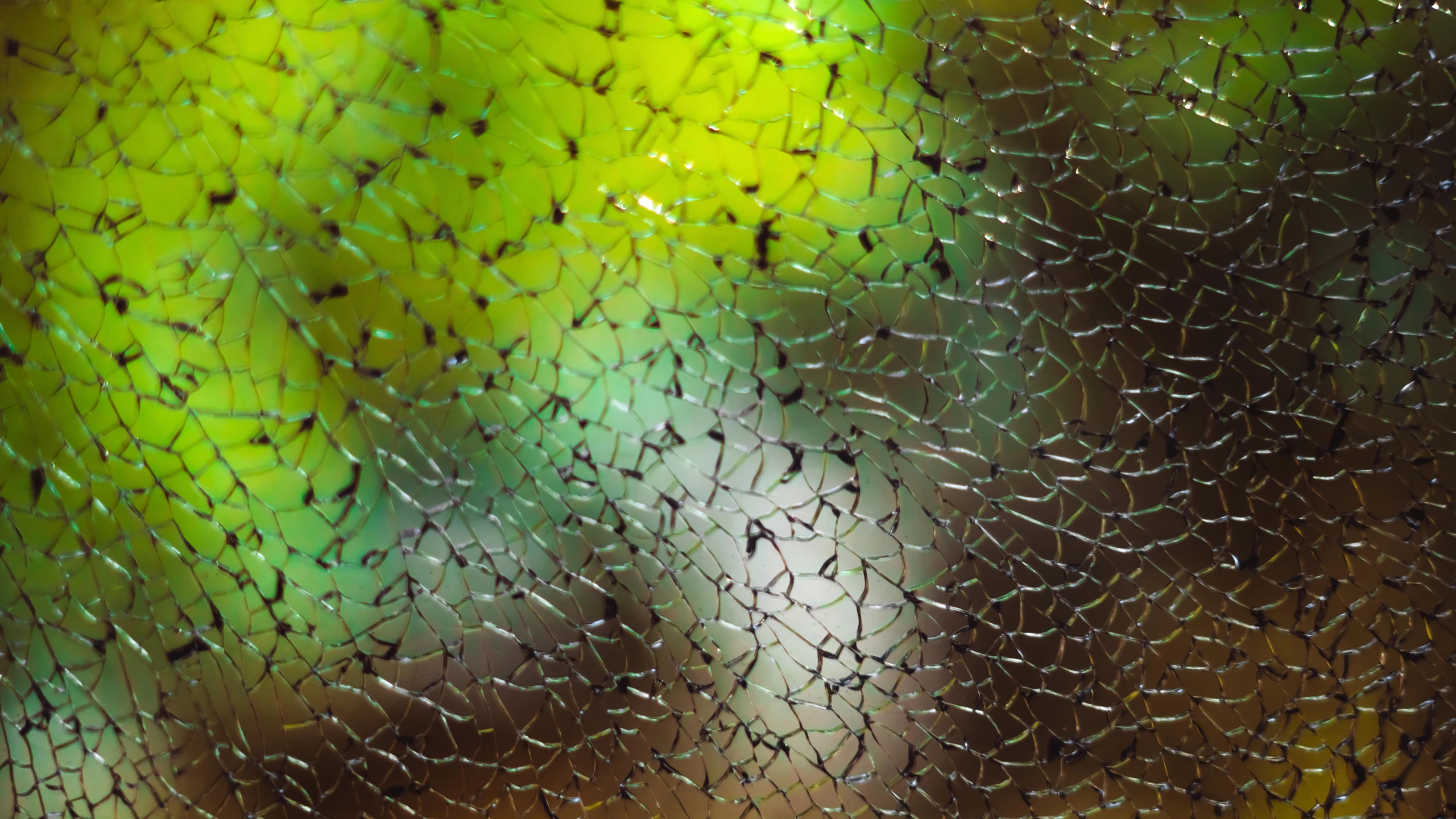
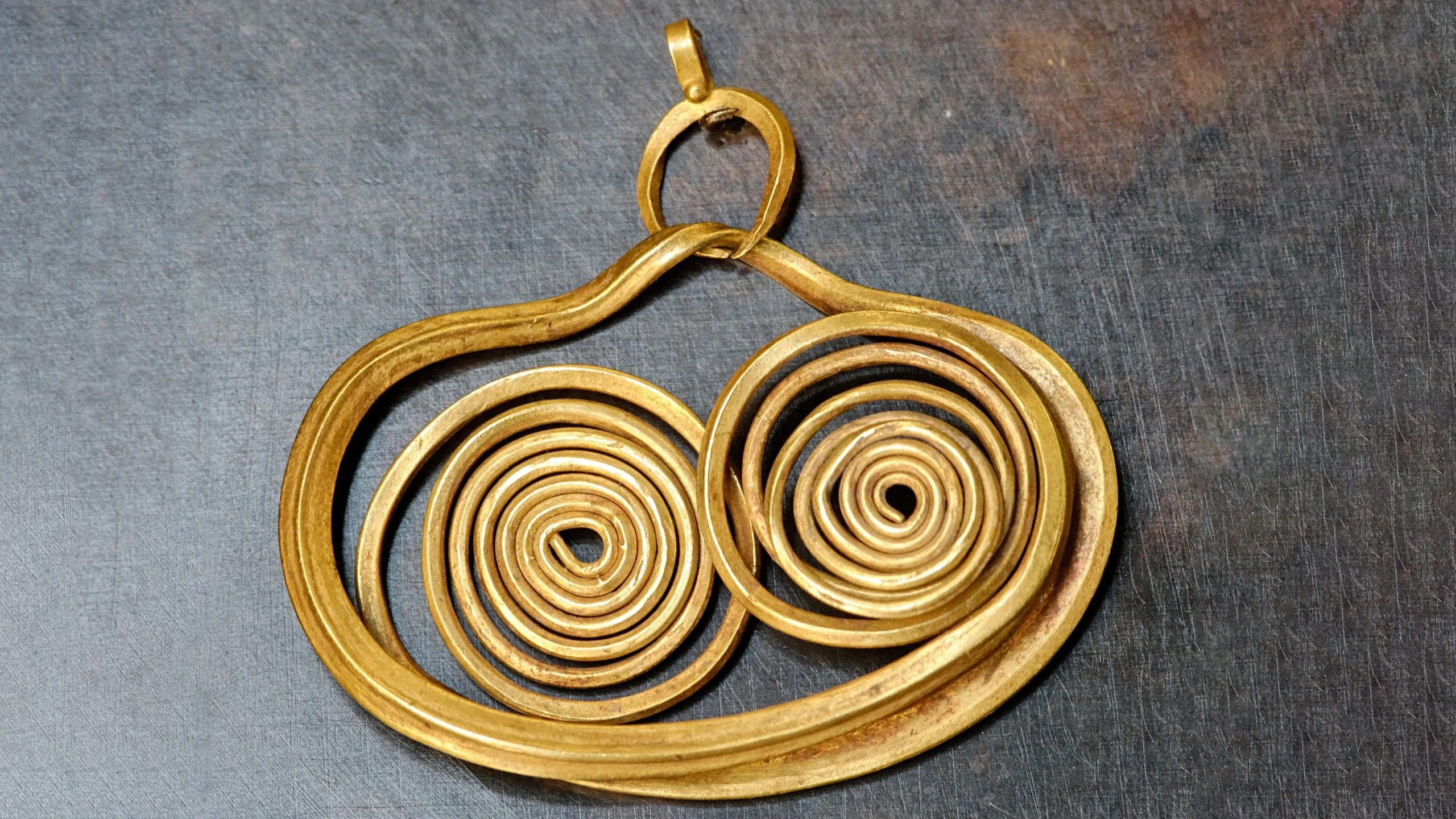
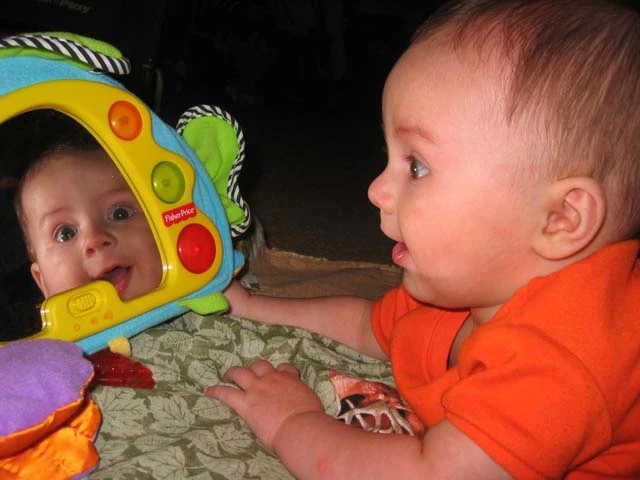
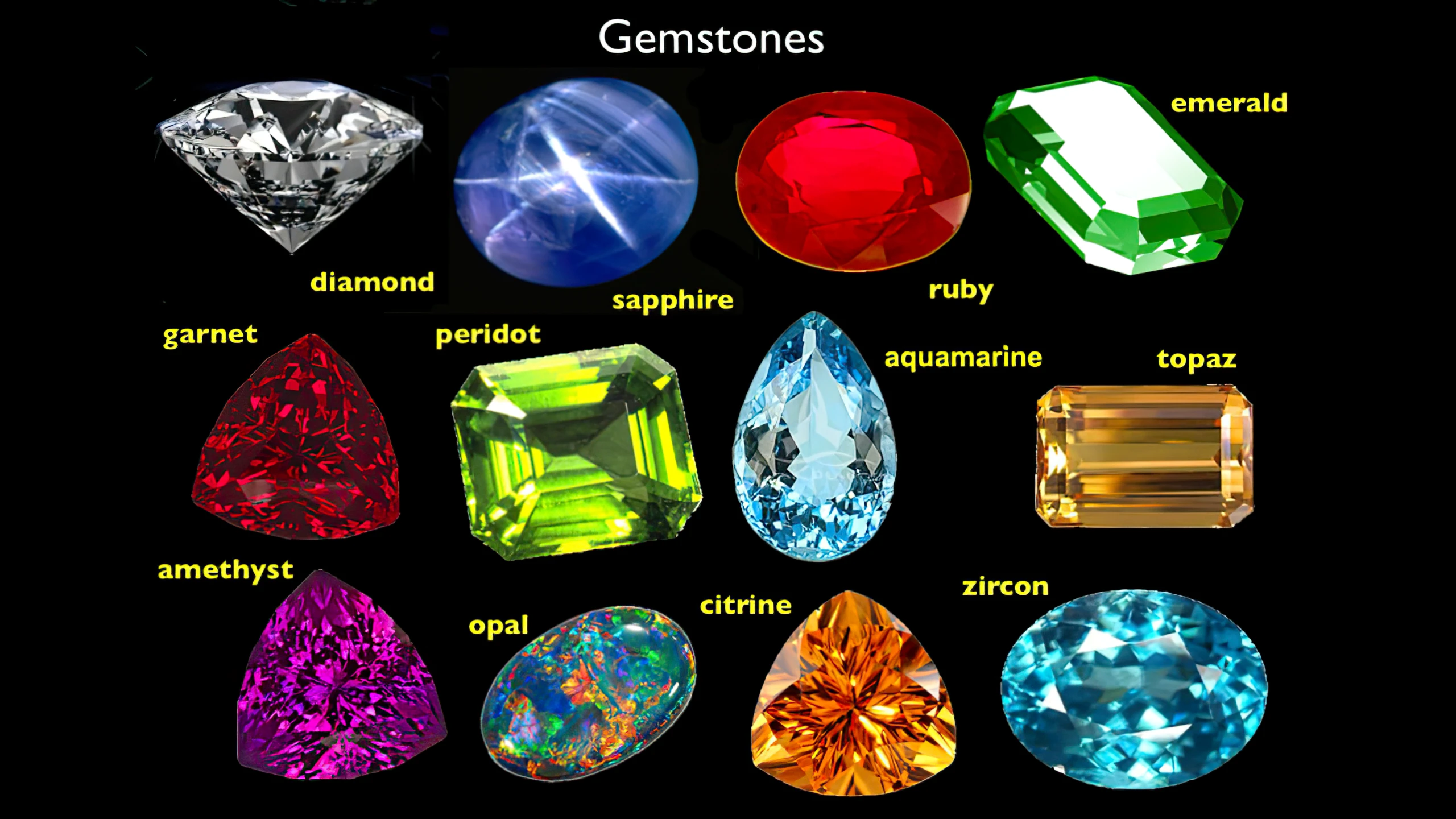

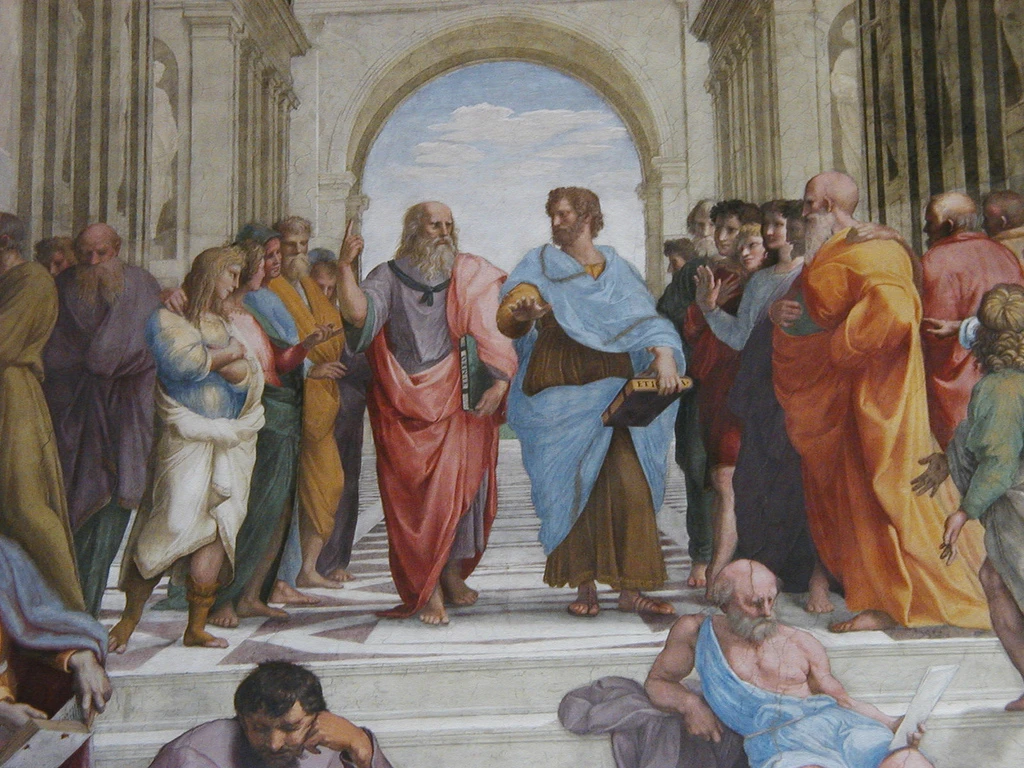


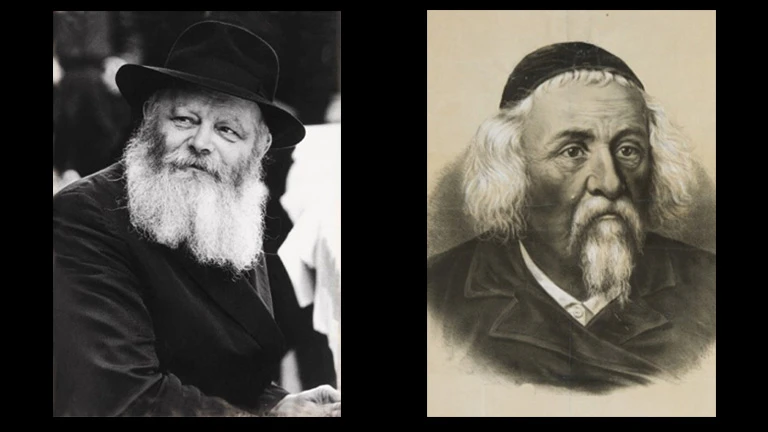

אנא השאירו את תגובתכם למטה!
Anonymous -4 שנים לִפנֵי
Excellent. Interesting and informative. Love how Rabbi pulls from different sources.
השיבו לתגובה זו.סמן את התגובה הזו.
Moshe -5 שנים לִפנֵי
Money, like fire, is a catalyst. It has no intrinsic value; it depends on how it is used.
השיבו לתגובה זו.סמן את התגובה הזו.
carpe diem 36 -8 שנים לִפנֵי
My late husband was a victim of Nazi atrocities and was also a slave laborer. He believed that he was totally entitled to receive payment or his forced labor. He did not think of it as dirty money, his imprisonment and torture distupted his young life, killed his mother and five siblings and confiscated his father business and property. The pittance the Germans offered was no compensation for what they did but it allowed him to have food and shelter in America when he was totally penniless. He did not think Begin was correct, and he was not.
השיבו לתגובה זו.סמן את התגובה הזו.